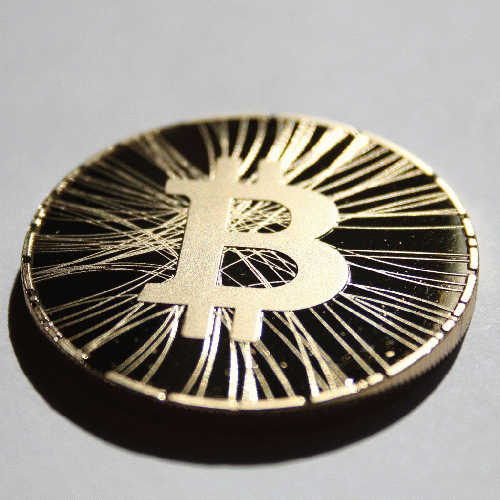Bitcoin is a disaster waiting to happen. The price of bitcoins has gone through massive gyrations of appreciation and depreciation referred to as bust and bubbles. Bitcoin is a digital currency that was invented in 2008 by an unknown person or group of people using the name Satoshi Nakamoto. The currency came into use in 2009. The bitcoin has no intrinsic value like silver, gold or shares of a company.
Fortunes have been made and lost trading bitcoins, just like those trading tulip bulbs in 17th century Holland.
Five reasons why bitcoins should be banned:
1. Bitcoin is an Illegal Currency
Under the U.S. Constitution, only Congress and the U.S. government have the power to create currency. Article I, Section 8, clause 5 of the Constitution provides that Congress has the exclusive power, "To coin Money, regulate the Value thereof, and of foreign Coin, and fix the Standard of Weights and Measures." Bitcoin is money. Money is used to buy things of value. It is not a credit card. It is not gold or silver. It is plainly and simply money. Congress could pass legislation to ban Bitcoin and other cyber-currencies expressly and should do so.
2. Bitcoins are Mainly Used for Illegal Purposes.
Criminals, drug dealers, hackers, blackmailers and other ne'er-do-wells love bitcoins. The Colonial Pipeline blackmailers got away with millions of dollars worth of bitcoins. Bitcoins are the currency of choice for international drug smugglers.
3. Bitcoins are Like Tulipmania in 17th Century Holland
Tulipmania is the story of a major speculative bubble that took place in the 17th century as Dutch investors began frenetically to purchase tulips, pushing their prices to unprecedented highs. During Tulipmania, the average price of a single buld exceeded the annual income of a skilled worker and cost more than some houses at the time. The same is true of the bitcoin.
Before 1633, Holland's tulip trade had been restricted to professional growers and experts, but the steadily rising prices tempted many ordinary middle-class and poor families to speculate in the tulip market. Homes, estates, and industries were mortgaged so that bulbs could be bought for resale at higher prices. Sales and resales were made many times over without the bulbs ever leaving the ground, and rare varieties of bulbs sold for the equivalent of hundreds of dollars each. The crash came early in 1637, when doubts arose as to whether prices would continue to increase. Almost overnight the price for tulips collapsed, sweeping away fortunes and leaving behind financial ruin for many ordinary Dutch families.
The rise of the bitcoin has a similar history. One minor difference is that tulip bulbs actually have intrinsic value while bitcoins do not. In 2011, the value of one bitcoin rapidly rose from about thirty cents to $32 before returning to $2. On November 29, 2013, the cost of one bitcoin rose to a peak of $1,242. The next year, the price fell sharply, and as of April remained depressed at little more than half of 2013 prices. As of August, 2014 it was under $600. In July, 2021 the price of a bitcoin is $32,501, well below its all-time high of $60,000. Bitcoin was worth just over $60,000 in both February, 2021 as well as April, 2021.
4. Bitcoins are an Environmental Disaster.
What began as an experiment has morphed into an environmental disaster. It is estimated that running the bitcoin network now consumes 45.5 terawatt-hours per year of electricity - enough to power more than four million homes in the U.S. Bitcoins consume more power annually than Argentina. Creating units of a digital currency is - by design - incredibly energy intensive. A recent study by MIT shows that Bitcoin mining generates 22 to 23 megatons of carbon dioxide annually, placing the Bitcoin between the CO2 pollution generated by the nations of Jordan and Sri Lanka.
(Note: You can view every article as one long page if you sign up as an Advocate Member, or higher).





